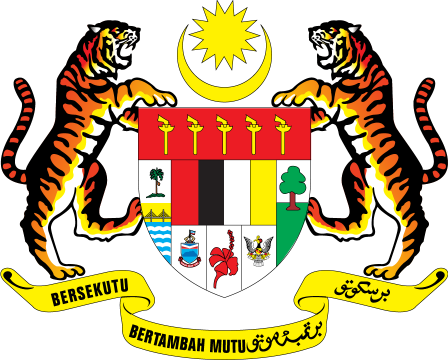Identifying the contribution of students generated activities for STEM
by bringing your own mobile devices (BYOD) approach for local
educational context
Research Domain: Arts and Applied Arts
Sub Domain: Education
Assoc. Prof. Ts. Dr. Shamsul Arrieya bin Ariffin
Associate Professor
Faculty of Art, Computing and Creative Industries
Universiti Pendidikan Sultan Idris
shamsul@fskik.upsi.edu.my
| NO |
NAME |
INSTITUTION |
FACULTY/SCHOOL/ CENTRE/UNIT |
| 1 |
Dr. Syamsul Bahrin Zaibon |
UPSI |
School of Creative Industry Management & Performing Arts
|
| 2 |
Assoc. Prof. Ts. Dr. Abu Bakar Bin Ibrahim |
UPSI |
Faculty of Art, Computing and Creative Industries |
| 3 |
Professor Dr. Ahmad Zamzuri Bin Mohamad Ali |
UPSI |
Faculty of Art, Computing and Creative Industries |
| 4 |
Mr. Salman Firdaus bin Sidek |
UPSI |
Faculty of Art, Computing and Creative Industries |
| 5 |
Assoc. Prof. Dr. Maizatul Hayati binti Mohamad Yatim |
UPSI |
Faculty of Art, Computing and Creative Industries |
2 years (15 August 2017 – 14 August 2019)
The emergence of mobile learning or mLearning, gives students hope to
become more motivated to learn STEM by bringing their own device
(BYOD). This study was conducted to investigate Malaysian
students’ experiences of using STEM mobile learning through
student generated activities. The methodology used is largely
qualitative using focus group discussions with students and interviews
with lecturers from universities in Malaysia. The findings are
developed themes that emerged from the data which are prior student
generated activities. Next, the themes emerged after student generated
activities. Finally, mLearning best practices for STEM have been
proposed for mLearning student generated activities. Therefore the
main contribution of this study are insights from the Malaysian
universities academics and students’ perspectives for mLearning
student generated activities in STEM subjects.
-
To investigate and categorize existing students' experiences
using mobile devices.
-
To investigate and categorize students' perspectives and
experience for student-generated activities for STEM subjects.
-
To develop guidelines of best practices for student generated
activities for STEM subjects.

-
Talent:
-
2 Masters
- Muhd Nur Zuhairi Bin Zubir (Graduated)
- Afif Bin Ali (Graduated)
-
Publication:
-
Article in Indexed Journals
-
Early Investigation of the Impact of Mobile Learning
Ethics Student-Generated Activities for STEM Subjects in a
Local Malaysian University Context (2020) – SCOPUS
-
Preliminary Insights on Investigating Existing Mobile
Ethics through Mobile Learning for a Local Context (2019)
- ERA
-
Conference Proceedings
-
Towards a Smart Educational Environment Framework for
mLearning in a Malaysian context (2018) – SCOPUS
-
An Investigation of Student Experience of STEM Mobile
Learning in a Local Malaysian University (2018)
-
Needs and Potentials for Studying Local Malaysian Culture
through Mobile Learning (2017) – SCOPUS
-
Identification of Usability Impact of Mobile Learning STEM
in a Local University Context (2019) - SCOPUS
-
A League of Their Own: Cultural Appropriate Design Impact
to Mobile Applications in Local Context (2019)
- K-NOVASI (2019) – Silver Medal
-
30th International Invention Innovation & Technology
Exhibition (2019) – Silver Medal

The impact is aligned with the STEM Initiative in Malaysia Education
Blueprint 2013-2025 from the Malaysian government to equip students
with the skills to meet the science and technology challenges and to
ensure that Malaysia has a sufficient number of qualified STEM
graduates that are lacking. It is also aligned with RM 10th and 11 th
plan to foster local content development for Malaysia. Further
descriptions about the impact statement are related to the research
and can be read from the final report. Likewise, future
recommendations serve their purpose for forthcoming utilization of
mLearning in STEM subjects in different institutions such as community
colleges, secondary schools, primary schools and kindergartens. This
future research can overcome the limitations of the current research
by adding perspectives and new ideas and approaches in different
contexts for mLearning student-generated activities particularly in
the Malaysian local context. Yet, these future recommendations will
pave the way for directions in mLearning in the local context and
benefit the community by conducting student-generated activities.



